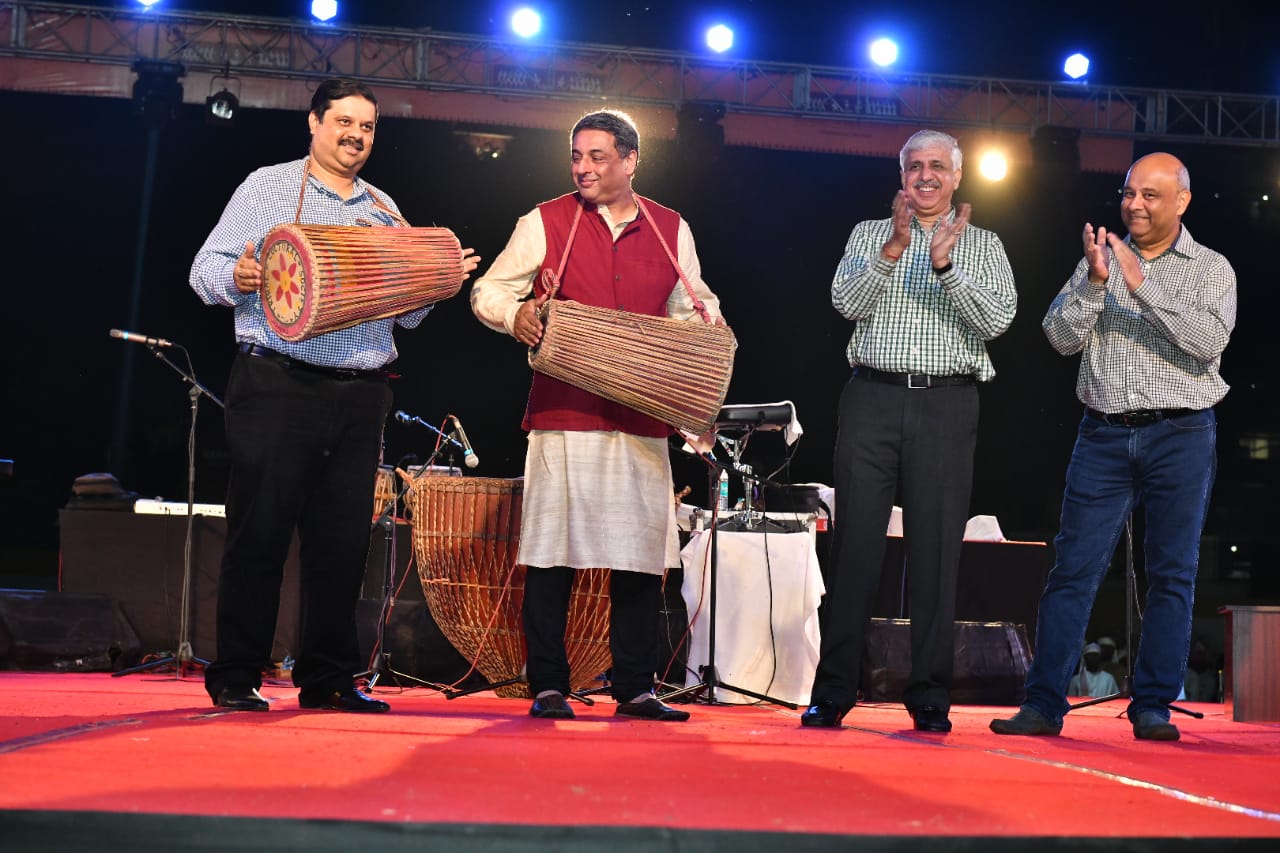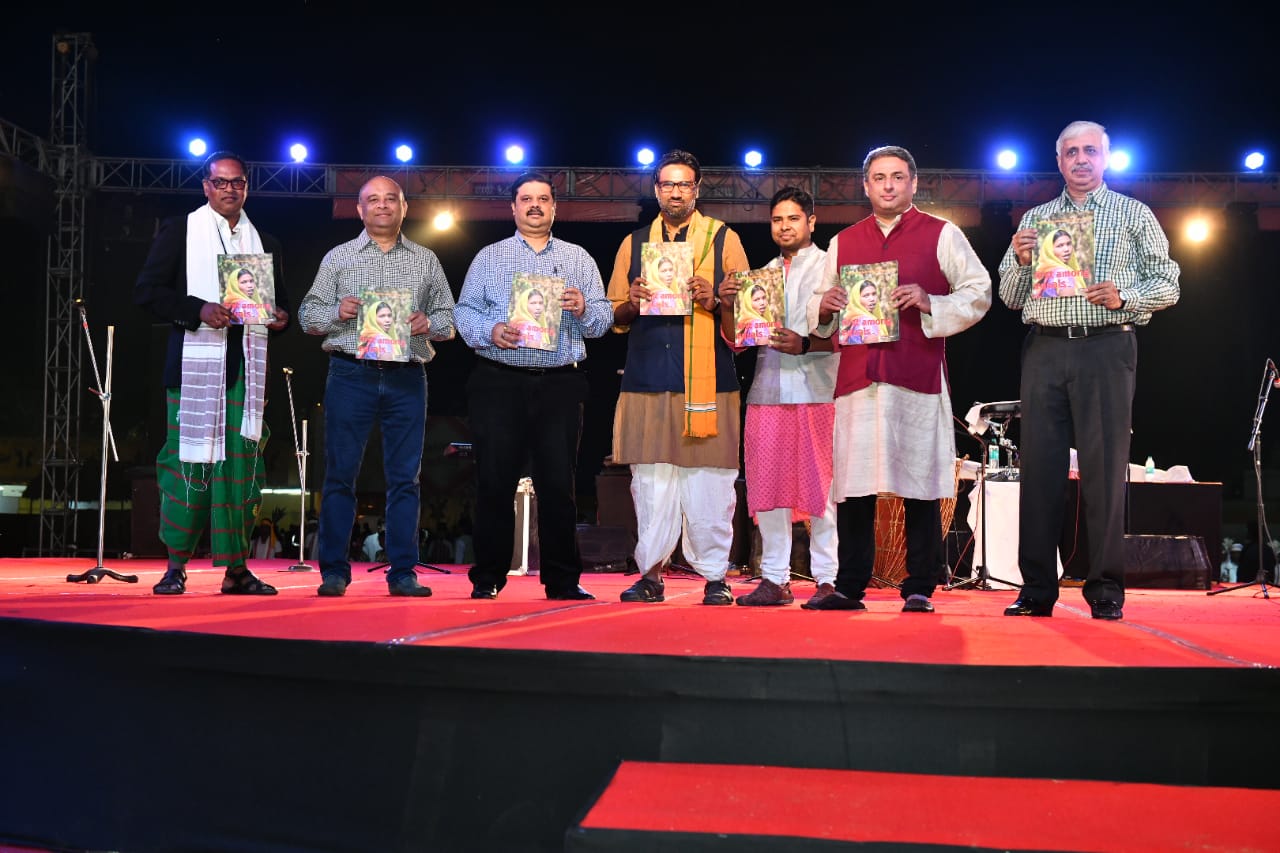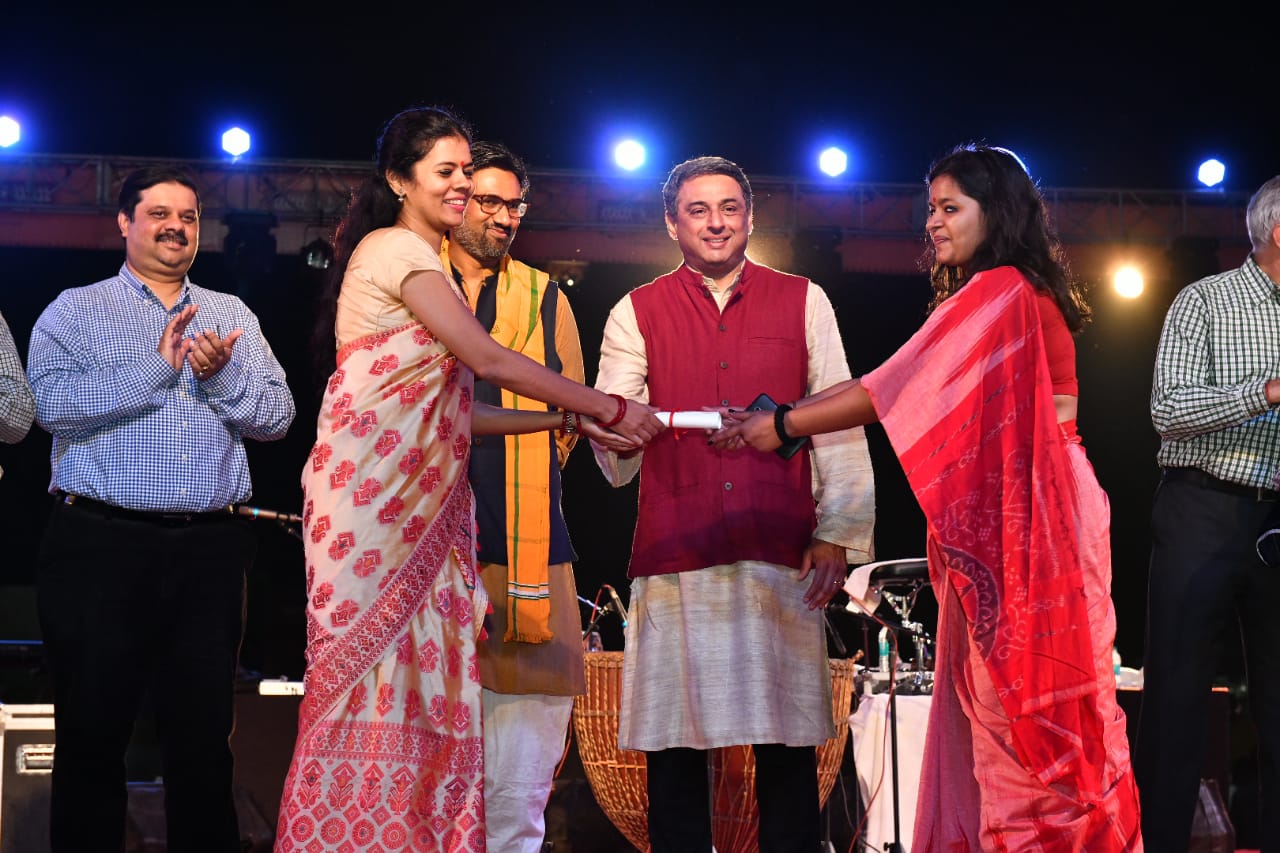Samvaad launches its music performers on Day 3
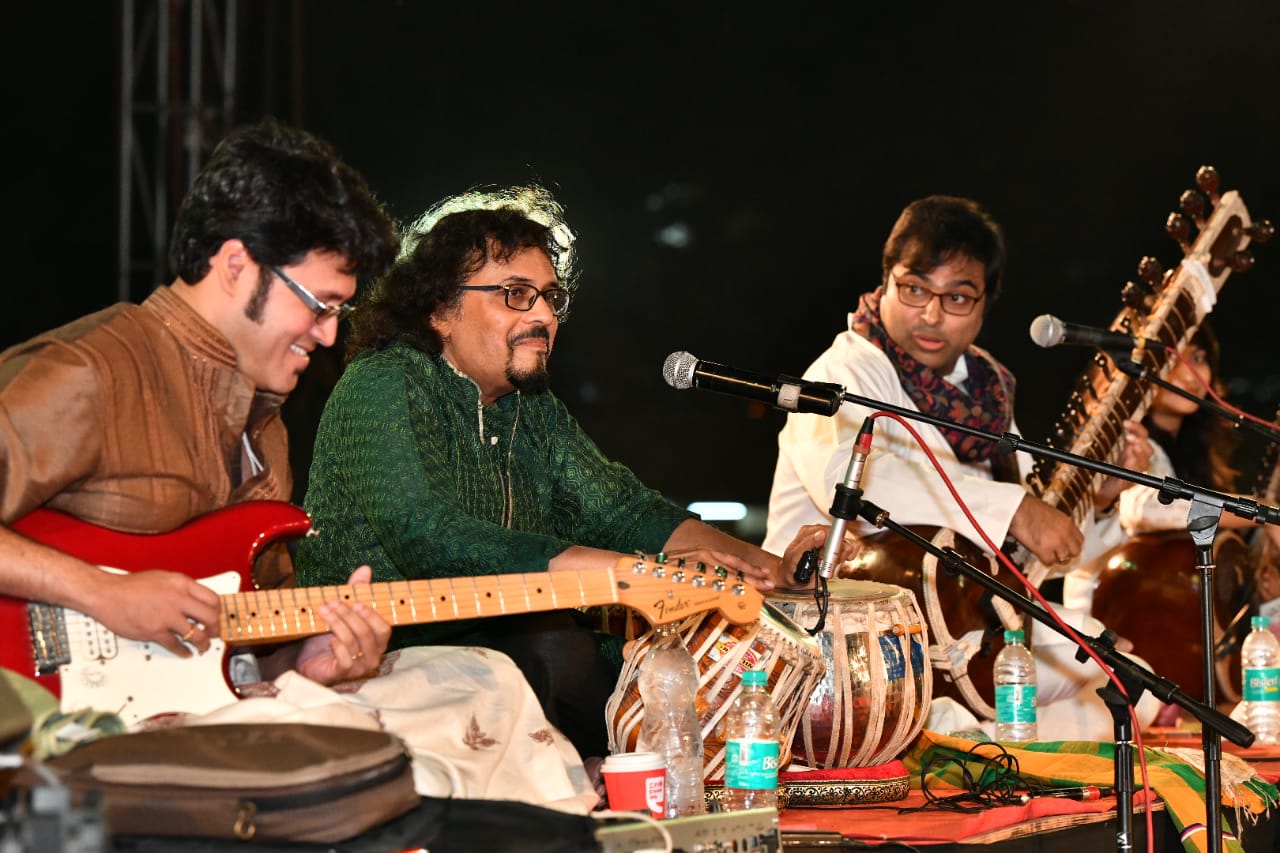
The third day of 5th edition of Samvaad witnessed the launch of ‘Rhythms of the Earth’, a music extravaganza which is perhaps the first-ever music collaboration between tribal musicians and present day maestros.
A total of 64 performers from 5 states of India and 13 tribes played various tribal instruments alongside tabla maestro, Mr Bickram Ghosh and sitar maestro, Mr Purbayan Chatterjee. The instruments included nagada, banam, flute, tuila, mandar, among others.
The morning session was devoted to Land and Forest where various groups shared stories of their collective effort towards restoring forest lands and putting them to productive purpose.
The evening function at the Gopal Maidan saw the presence of Mr. T V Narendran, CEO & MD, Tata Steel, Mr. Koushik Chatterjee, Executive Director and CFO Tata Steel, Mr. Chanakya Chaudhary, Vice President Corporate Services, Mr Avneesh Gupta, Vice President, Shared Services, Mr Suresh Dutt Tripathy, Vice President, HRM and others.
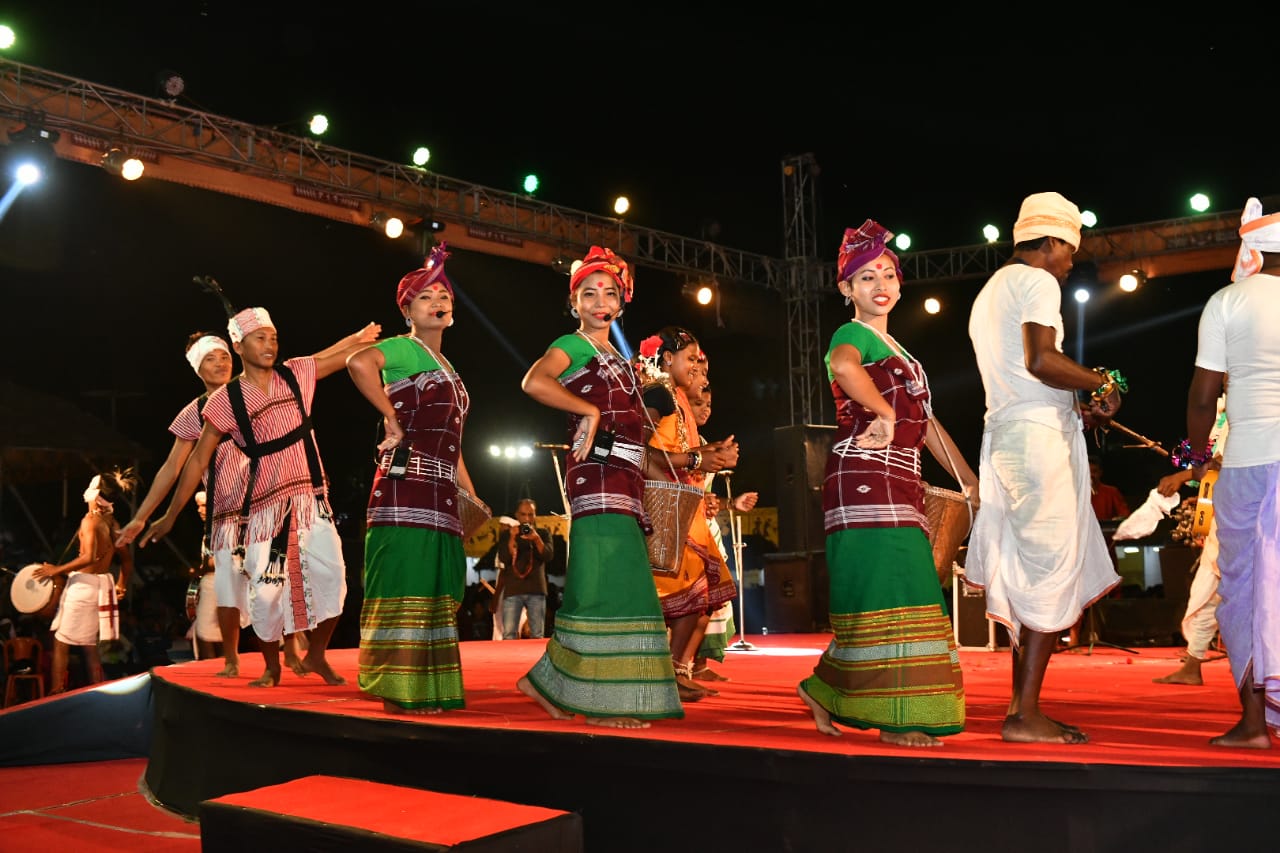
Winners of Samvaad Fellowship, Samvaad Paper presentation and Samvaad Film Competition were also recognized at the function.
Lepcha Dance was performed by the Lepcha community from Sikkim,
During the morning sessions at the Tribal Centre (TCC) , representatives from Maasai tribe of Kenya, David, Joseph and Daniel elaborated on their tribes very strong cultural connections. “We are never in hurry to adopt western culture. Our culture is our strength and not liability. As we focus on conservation of culture and preservation of nature, the Maasai tribes live 20 years more as compared to others. We do follow traditional wisdom and knowledge and follow a culture of respect and courtesy.”
The day’s deliberations at TCC centered around ‘Land and Forest Rights for Tribal Communities’ during which sessions were held on Learning from Incredible Tales of Collective Struggle, Sacrifice and Success among tribal communities, stories and experiences from participants on land and forest rights, ostering a shared perspective on Coming Together for Social Change’.
Day 4 Highlights:
- Handicraft Workshop
- Tribal Healers’ Workshop
- Back to Basics (Cooking Class)
- Tribal Art & Craft
- Tribal Medicinal Haat
About Tata Steel
Tata Steel Group is among the top global steel companies with an annual crude steel capacity of 27 million tonnes per annum (MTPA) as on March 31, 2018. It is the world's second-most geographically-diversified steel producer, with operations in 26 countries and a commercial presence in over 50 countries. The Group recorded a consolidated turnover of US $20.41 billion (INR 133,016 crore) in FY18. Tata Steel Group is spread across five continents with an employee base of nearly 74,000. Tata Steel retained Industry Leader position in FY18 and ranked second overall in the DJSI assessment, 2017. The Company has been recognised as the Climate Disclosure Leader in ‘Steel category’ by CDP (2017). Besides being a member of the World Steel Climate Action Programme, Tata Steel was felicitated with several awards including the Prime Minister’s Trophy for the best performing integrated steel plant for 2014-15 and 2015-16, Best Risk Management by CNBC TV18 (2018) and ‘Corporate Strategy Award’ by Mint (2018). The Company also received the ‘Most Ethical Company’ award from Ethisphere Institute for the sixth time (2018), Steel Sustainability Champions (2017) by the World Steel Association, Dun & Bradstreet Corporate Awards (2017 & 2018), Golden Peacock HR Excellence Award by Institute of Directors (2017) as well as 'Asia's Best Integrated Report' award by the Asia Sustainability Reporting Awards (2017), among several others.
Disclaimer
Statements in this press release describing the Company’s performance may be “forward looking statements” within the meaning of applicable securities laws and regulations. Actual results may differ materially from those directly or indirectly expressed, inferred or implied. Important factors that could make a difference to the Company’s operations include, among others, economic conditions affecting demand/ supply and price conditions in the domestic and overseas markets in which the Company operates, changes in or due to the environment, Government regulations, laws, statutes, judicial pronouncements and/ or other incidental factors.
